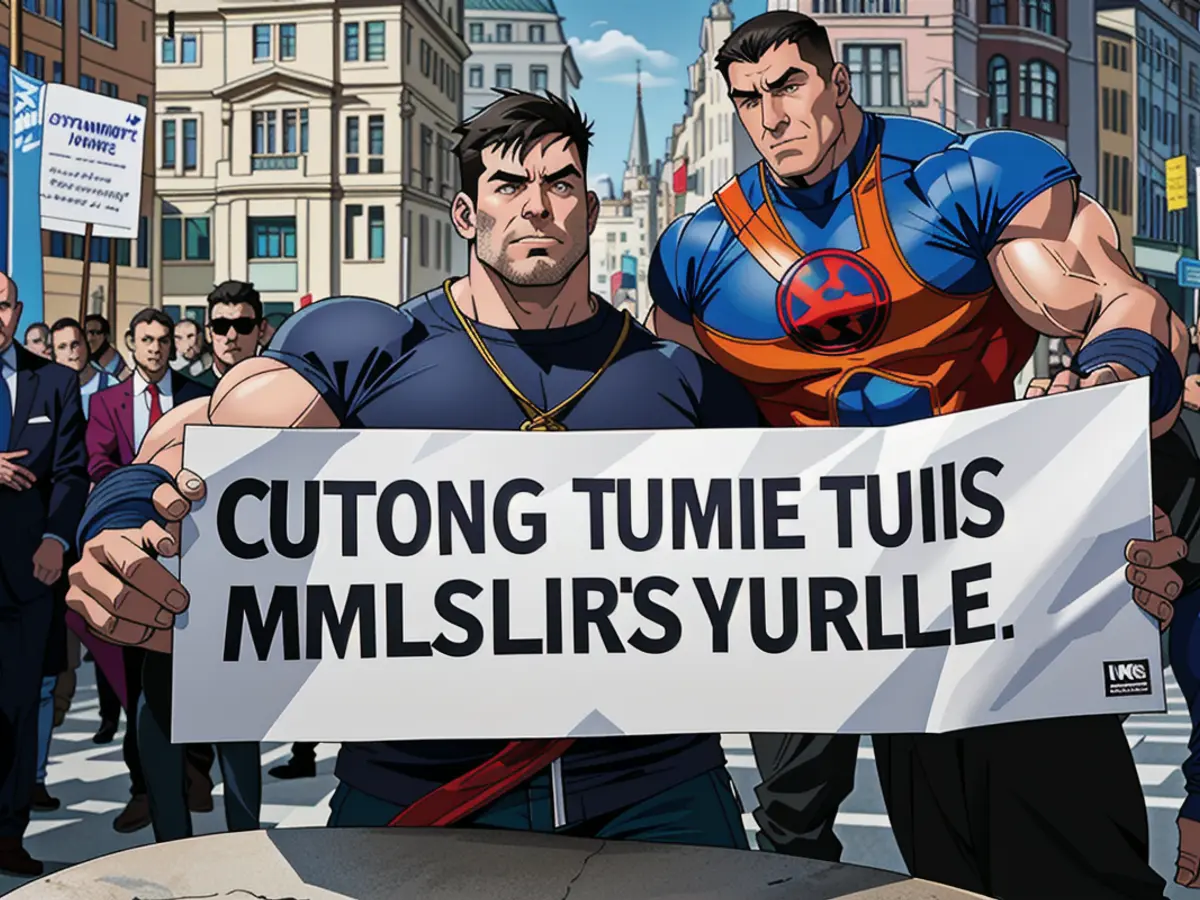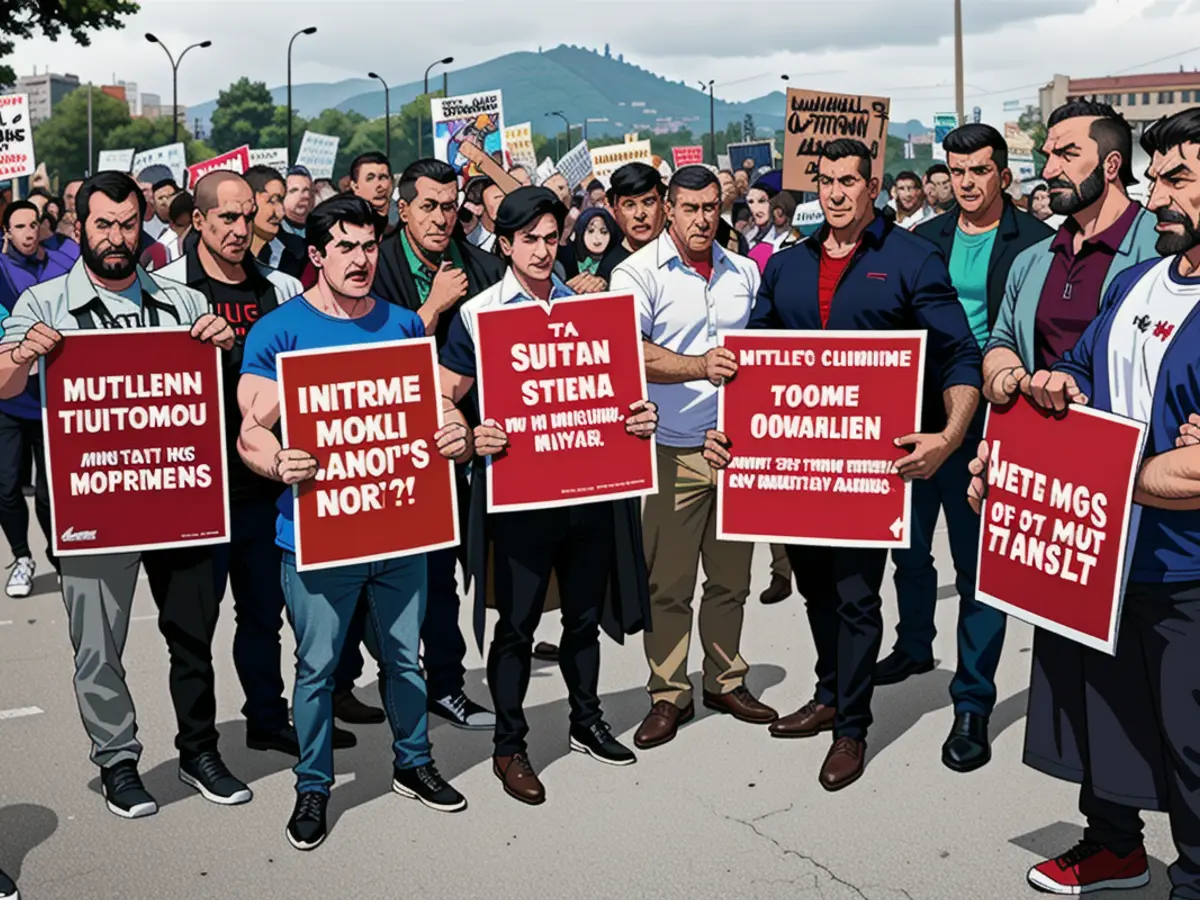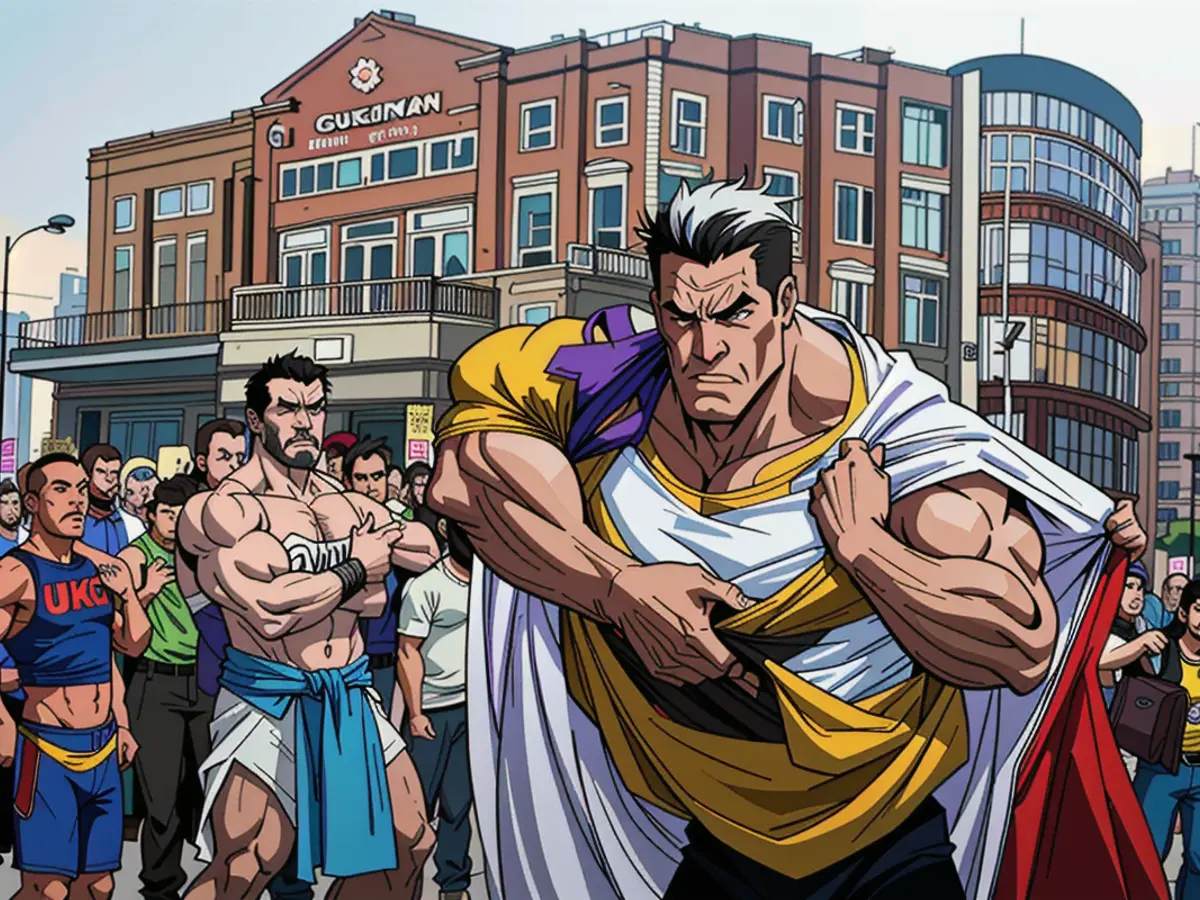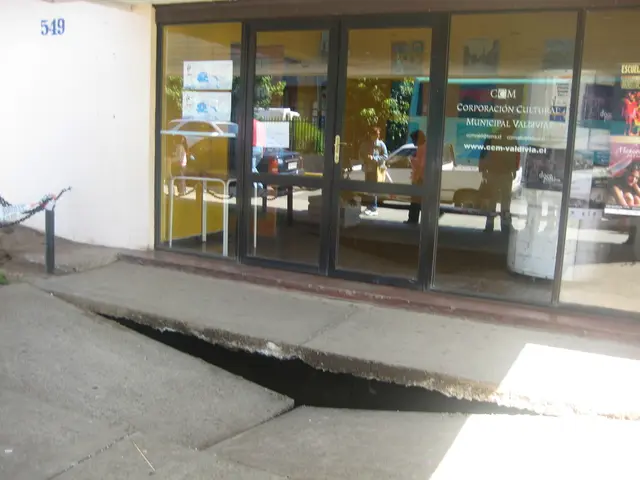Mass trials commence in Turkey, triggered by demonstrations sparked by the incarceration of Istanbul's mayor.
Fired Up Turkey:
A wild weekend in Turkey as mass trials get underway, targeting hundreds of protesters—including journalists, students, and activists—who took part in demonstrations sparked by the imprisonment of Istanbul's mayor Ekrem Imamoglu. On Friday, 189 individuals found themselves in the hot seat across two jam-packed courtrooms within Istanbul's Caglayan justice palace, one of the city's main courts.
The courts decided to split the defendants into manageable groups following procedural motions by defense lawyers. These trials stem from the protests ignited after Imamoglu's arrest on March 19 on corruption charges—a move that critics deem an attempt to silence a crucial nemesis to President Recep Tayyip Erdogan ahead of elections slated for 2028.
Over a thousand protesters were nabbed during the demonstrations, which have posed one of Erdogan's biggest challenges to his long-standing rule. He's aggressively seeking another extension of his presidency.
Human Rights Watch (HRW) swiftly labeled the trials as politically motivated, citing a lack of evidence and a disregard for democratic norms. A small crowd of parents and supporters gathered outside the court, calling for justice for the students among the defendants. One spectator group released balloons, declaring, "We release these balloons to symbolize their right to freely express themselves, their right to education, and their right to lead free lives."
Eight journalists, apprehended while covering the protests, also appeared in court on Friday. One defense lawyer demanded the immediate dismissal of the case, arguing, "The journalists were performing their constitutionally protected jobs."
HRW scrutinized the indictments against 650 demonstrators "accused of protest-related offenses," noting that 120 individuals were charged for assemblies held after an eight-day protest ban expired. Potential sentences range from six months to five years, yet in some cases, the evidence appeared thin. A stone once held by a protester was even cited as a weapon.
Meanwhile, students remain at the heart of this upheaval. They stand opposed to Erdogan's government, which has often been under fire for its policies on assembly rights. The European Court of Human Rights has issued over 70 rulings against Ankara since 2010 for disproportionate crackdowns, as reported by HRW.
The Council of Europe calls on Turkey to uphold "the right to peaceful protest," among other safeguards. Yet, Erdogan's government has not loosened its grip; as a matter of fact, Freedom House classifies Turkey as "not free" due to censorship and surveillance laws.

As Turkey's protests reach a fever pitch, observers warn that authoritarianism seems to be gaining ground, especially considering that 90% of Turkish media is under government influence, and journalists are frequently targeted. These ongoing cases underscore a broad erosion of rights under Erdogan, who has ruled since 2003 and could maintain power until 2029 if elections don't occur earlier. Imamoglu is currently leading in some polls, challenging the ruling party.
CNN's Mohammed Tawfeeq contributed to this report.
The Whole Story:
Turkey has been jolted by massive protests over the past year, triggered by the imprisonment of Istanbul Mayor Ekrem İmamoğlu and over 100 opposition figures on charges widely seen as politically motivated[3][5]. The protests, active in more than 55 provinces, have galvanized hundreds of thousands of attendees, with university students playing a pivotal role[3][5].
Pivotal Moments:- Widespread arrests and repression: Over 1,400 protesters have been detained, with authorities employing "unrelenting" force according to Amnesty International[5]. At least 71 protesters face formal charges, while around 2,000 have been temporarily detained[3].- Media suppression: The deportation of BBC correspondent Mark Lowen after 17 hours of detention showcases the government’s crackdown on international press coverage[1][5]. Domestic journalists are similarly facing arrests and restrictions[4][5].- Economic strife: The Turkish lira dropped 16% against the dollar in three days following İmamoğlu’s arrest, worsening preexisting economic struggles[3]. Erdogan has blamed the opposition for these economic woes[1].- Legal tactics: İmamoğlu, who is already fighting a 2022 conviction that would ban him from politics, now faces additional charges of "aiding terrorists"—a pattern seen in earlier arrests of CHP and pro-Kurdish politicians[5].
Political Consequences:
The protests bring together diverse political groups under symbolic allusions to Atatürk and republican values[3]. Erdogan’s government appears intent on using judicial mechanisms to sideline İmamoğlu, his primary rival for the 2028 presidential election[3][5]. While the AKP government might opt for early elections or tactical concessions, current strategies emphasize repression and economic blame-shifting[1][5]. International observers caution that these maneuvers hasten Turkey's democratic decline[2][5].
- The world is closely watching the ongoing mass trials in Europe, as Turkey prosecutes hundreds of individuals involved in the 2028 demonstrations, which include journalists, students, and activists, primarily targeting Istanbul's mayor Ekrem Imamoglu's supporters.
- The trials, deemed politically motivated by Human Rights Watch, have been criticized for lack of evidence and disregard for democratic norms, with potential sentences ranging from six months to five years.
- These trials and the 2028 elections could significantly impact the future of Turkey's politics, with President Recep Tayyip Erdogan aggressively seeking another extension of his presidency, facing challenges from opposition figures like Imamoglu.
- The Council of Europe has called on Turkey to uphold the right to peaceful protest and other safeguards, as the European Court of Human Rights has issued over 70 rulings against Ankara since 2010 for disproportionate crackdowns.
- The ongoing war-and-conflicts, politics, general-news, and crime-and-justice focuses on Turkey reveal a broader erosion of rights under Erdogan's rule, with 90% of Turkish media under government influence and journalists frequently targeted.









